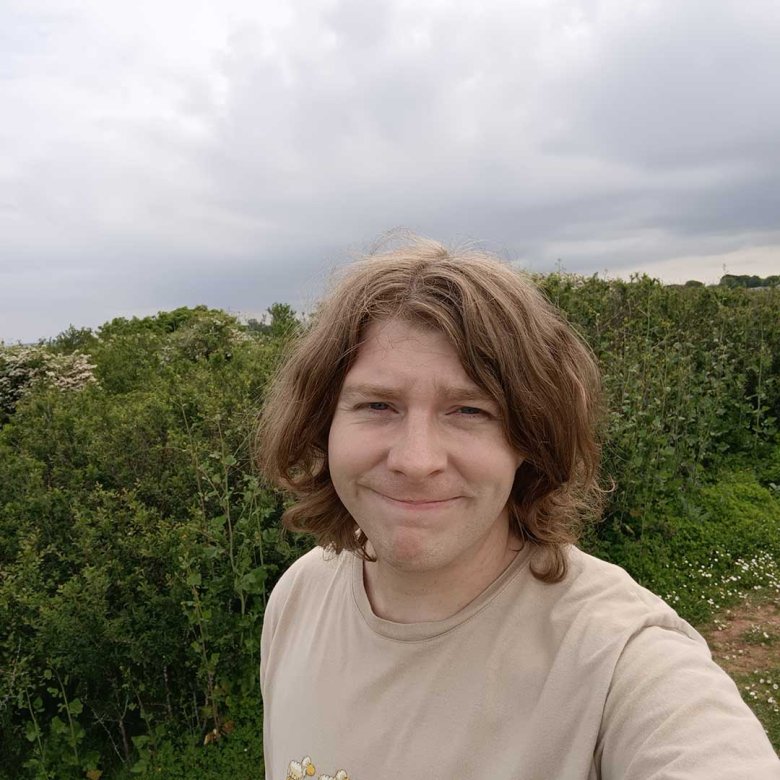When a Netflix star reads your comedy script in front of industry big wigs...
05 July 2023

Recent Comedy Writing MA (Online) graduate Sean Phelan is already catching the eyes of industry professionals. Last month, his Final Major Project script was featured as one of three finalist submissions in the BAFTA Rocliffe New Writing Showcase for Children, Family & YA Media, a prestigious annual platform for emerging writers to receive feedback from experienced industry members. We chatted to him about his first forays into professional comedy writing and how it felt to have a Netflix star perform his script in front of industry big wigs.
When did you first get into comedy?
I first got into comedy when I was in senior school. I joined the school comedy club with a few friends, where I wrote a pantomime along with some sketches and stand-up material. Through joining that club and really enjoying it, I found that maybe I was a bit funny, although I'm still not entirely convinced that I am!
What made you decide to study comedy writing online with Falmouth?
It was a bit of a lockdown-induced existential crisis! I had just left my job a month before the first lockdown, and I was going a bit stir crazy because I had nothing to work towards. My first degree was in audio production, and for several reasons, I realised I wanted to retrain; the music industry was particularly decimated by the pandemic, and although music was my original passion, a lot of the things I learned on that degree didn’t really apply anymore. So, I saw an advert online for Comedy Writing at Falmouth and figured that if I was going to do something, it might as well be something I enjoy. And I absolutely loved my time on the course – Simon, Andy, Karen and James are all amazing teachers and you're in very good hands on the course.
What was the most valuable thing you learned while on the course?
One of the first things you learn on the course is that all comedy characters have flaws. It’s a very simple thing, but it blew my mind. I've always watched and loved comedy, but I’d never realised that before. I find the world and everyone in it so fascinating because we are all flawed, and that is what makes us funny, and interesting to write about. It’s what drives the conflict and makes stories so engaging.
Your comedy script, Growing Pains, is a coming-of-age comedy following a character as he navigates being autistic and gay during his final years of college. It was also recently featured in the BAFTA Rocliffe showcase. Can you tell us about the experience?
Well, funnily enough, I wrote Growing Pains for my master’s Final Major Project. I have since developed it further; I never stop working on it because I’m so invested in it. I found out about the BAFTA Roccliffe showcase, and saw there was a child, family and young adult category, and thought maybe I could sneak in on the technicality of it being a young adult story. So, I just fired it off.
You initially find out if you've made the ten-person shortlist, after which you have time to produce a second draft. Next, you are given a page of feedback and another chance to rewrite your script. You submit it a final time, and they then choose the three finalists. And very luckily, I was one of them.
Always write the script that only you can write. Your own voice is the biggest asset you have when you first start out in the world of comedy writing.
At the showcase event, the finalists’ scripts are performed by professional actors to an audience of producers, development executives, directors, fellow actors and literary agents. Mine was read by Jack Wolfe, who has been in Inside No. 9, as well as Netflix’s Shadow & Bone and The Witcher.
It was an amazing experience. I was so busy scribbling down notes as it was happening because it’s honestly so useful having your work performed live in comedy. You get to see which jokes people laugh at, which can be surprising because often it's the jokes that you're not expecting to be funny that get the biggest laugh! I was also given very actionable feedback from several industry members – it’s all stuff that I can now take on board to develop my script even further.
If you could give aspiring comedy writers one piece of advice, what would it be?
Always write the script that only you can write. Your own voice is the biggest asset you have when you first start out in the world of comedy writing – the craft elements and actual writing techniques will come with time.
So, write your script through your own life experiences and based on the people you know, or have met. You might have met a particularly funny person on the train, for example – I tend to remember weird details about people which make for great material!
What’s next for you?
Getting some stuff made! That’s the next step. The BAFTA experience has been an amazing one, but I’m still very early into my writing career. I'm still very much learning and with every page I write, I'd like to think I'm working towards becoming the best writer I can be.




